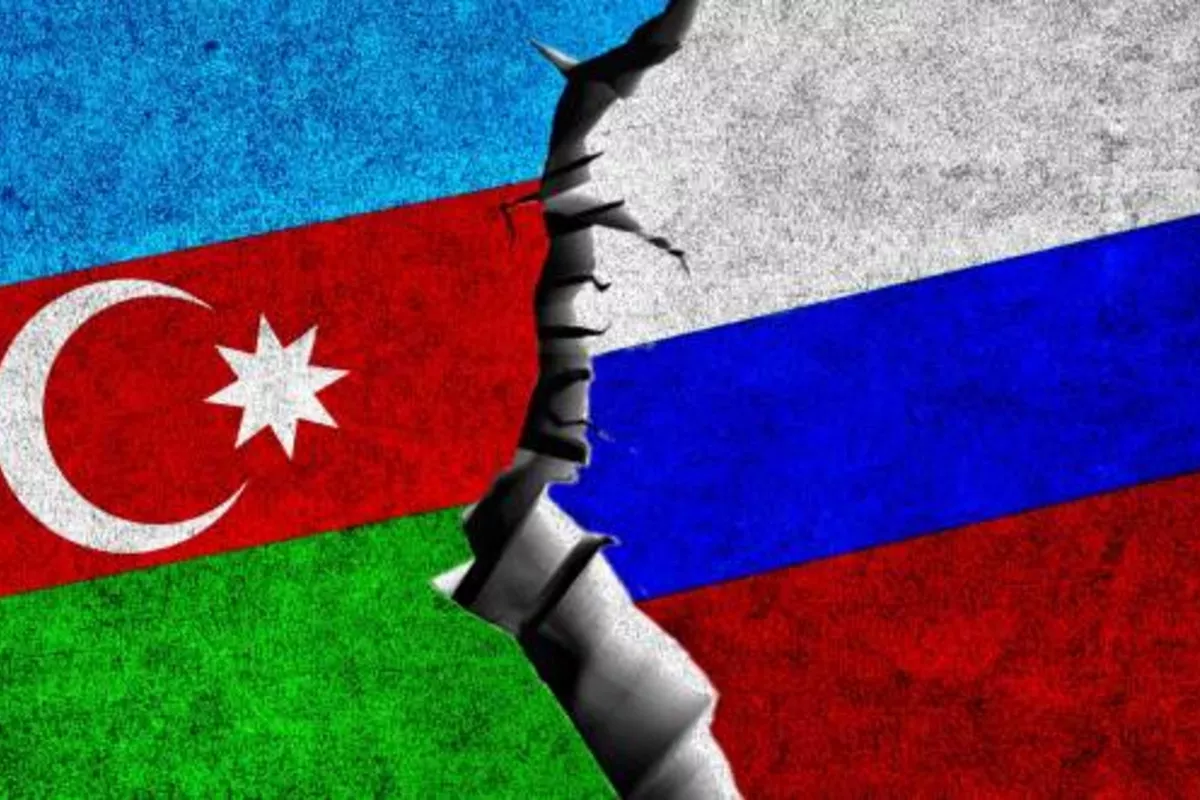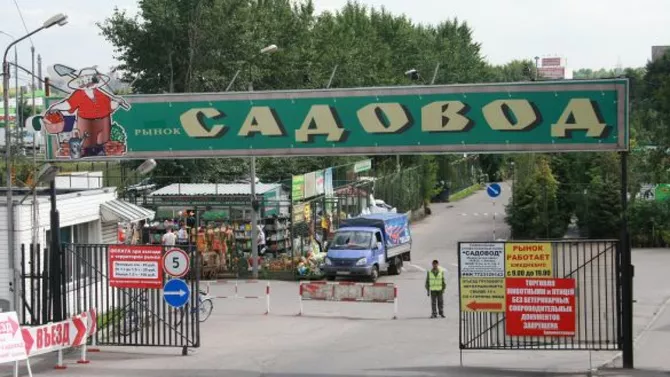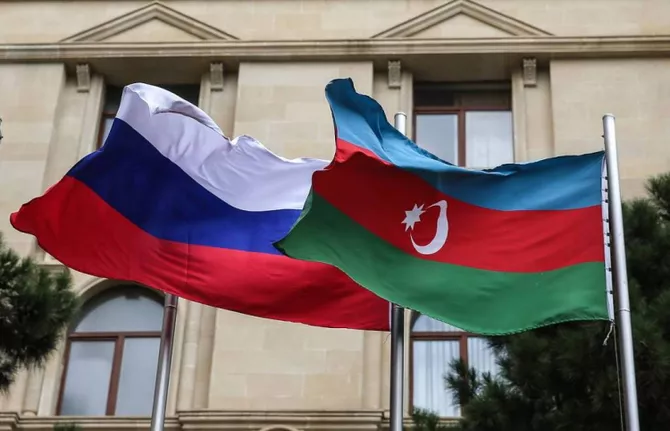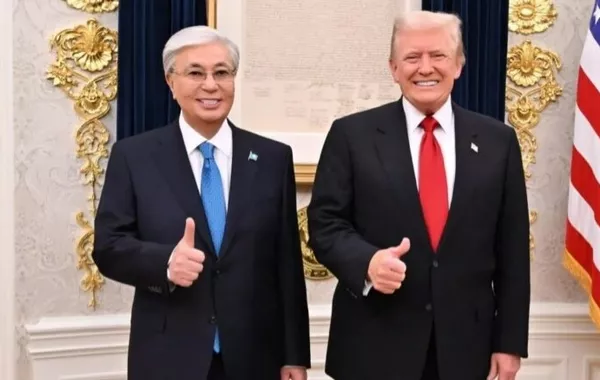
Creator: Ruma Aktar | Credit: Getty Images
According to Russian Telegram channels citing sources close to the Presidential Administration, the Russian Ministry of Internal Affairs is preparing to launch a campaign targeting markets where Azerbaijani nationals hold key positions.
The inspections are reportedly aimed at identifying illegal employment practices and violations of migration regulations.
Mass inspections are expected at markets in Moscow and the surrounding region, particularly those owned by Azerbaijani passport holders. Among the markets targeted is the well-known “Sadovod” market, which belongs to the “Kievskaya Ploshchad” company, owned by Azerbaijani-origin businessmen God Nisanov and Zarakh Iliev.

Photo by Denis Grishkin
As reported by the Telegram channel “Tainaya Kantselyariya” (“Secret Chancellery”), the primary focus of the authorities is not merely on the employment of foreign workers, but rather on large-scale tax evasion, sanitary and migration violations, and most importantly, the de facto monopolization of entire segments of the consumer market. The channel claims that “within the system, this is being interpreted as a political and law enforcement signal: the ‘infrastructure’ of Azerbaijani business in Russia, previously protected by informal ties, is now losing its immunity.”
Not only Telegram channels, but also Russian media have started reporting on punitive measures being planned against Azerbaijani-owned businesses in Russia. While legally justified on the surface, Russian sources admit that the campaign is in reality an act of retaliation against Azerbaijan, with the Azerbaijani diaspora bearing the brunt. Their position and interests in Russia are increasingly under threat.
Recently, Izvestia reported that around 200 fake shoe factories were discovered in the area of the Sadovod market. These so-called factories do not actually produce anything but rather serve as fronts for illegal goods distribution. The inspection was carried out under direct orders from the Russian government.
In addition to “Sadovod,” other major business assets in Moscow controlled by the Azerbaijani diaspora include “Food City” and the “Moskva” shopping center.
However, a source from the Sadovod market told News.Az that no inspections are currently underway.
This raises an important question: Why are Russian media actively escalating the situation? Why are they injecting narratives about impending crackdowns, raids, and punitive actions into public discourse-while simultaneously insisting that these actions are politically motivated and a response to Azerbaijan’s distancing from Moscow?

Let us recall that during the diplomatic crisis triggered by the downing of an Azerbaijani passenger plane, Russian Telegram channels circulated a photo of a document allegedly signed by the head of Russia’s Investigative Committee, Colonel-General of Justice A.I. Bastrykin. The document was said to have been sent to leaders of Azerbaijani diaspora organizations in Russia and outlined plans for deportation of Azerbaijani nationals. It was later proven to be a fake.
Whether the reports by “Tainaya Kantselyariya” turn out to be true remains to be seen. However, it is now impossible to deny the existence of growing problems.
In Russian media, the Azerbaijani diaspora has become a constant topic. While the deterioration of relations between Baku and Moscow has had little to no effect on the Russian community in Azerbaijan, the situation for Azerbaijanis in Russia is increasingly alarming. Numerous social media posts reflect rising anxiety.
Of particular concern is the growing wave of hostility toward Azerbaijanis. According to Russian bloggers citing high-level sources, Moscow allegedly intends to channel its discontent with Azerbaijan’s foreign policy directly onto members of the diaspora. So far, this has taken the form of an information campaign-but whether it will escalate into real action remains uncertain. Especially amid rumors that the owners of the Sadovod market enjoy a close personal relationship with Russian President Vladimir Putin.
In this context, it is also important to consider recent controversial remarks made by Russian presidential aide Vladimir Medinsky in a June 9 interview with RT. Medinsky drew an inappropriate parallel between the Karabakh conflict and the Russia-Ukraine war, even calling Karabakh a “disputed territory.” It is unlikely this was a slip of the tongue-it appears to have been a deliberate statement designed to provoke Baku. The Azerbaijani side responded in a restrained yet firm manner.

Russian Presidential Aide Vladimir Medinsky © Ramil Sitdikov/POOL/TASS
Tensions between Baku and Moscow began to intensify following the incident involving an AZAL passenger plane traveling from Baku to Grozny, which was shot down over the North Caucasus by a Russian air defense system activated in response to a perceived threat of Ukrainian drone attacks. The crew had not been warned about the ongoing “Operation Carpet,” which was launched after the plane was hit. Azerbaijan reacted harshly, demanding an official admission of guilt, a formal apology, and compensation from Moscow. The Russian side, however, refused to take responsibility, despite overwhelming evidence. In response, Baku shut down the Russian Cultural Center (“Russkiy Dom”).
Amid these rapidly deteriorating relations, Azerbaijan is not expected to soften its position. Tensions are further exacerbated by the protracted investigation underway in Kazakhstan. Each new incident only adds to the growing climate of mistrust.
Official agencies in both countries are reluctant to make bold statements, fearing that reckless rhetoric could further damage bilateral ties. As a result, the information vacuum is being filled by media outlets increasingly engaged in tit-for-tat narratives-an indication of a deepening crisis.
A tangle of mutual grievances is forming, tightening with each passing day. If steps are not taken soon to ease the situation, this knot may become impossible to untie.
By Tural Heybatov
Share on social media
